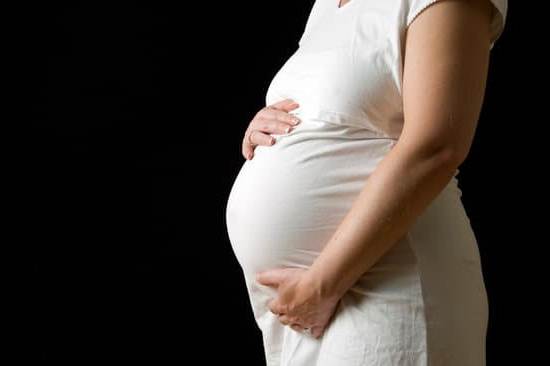When is nutrition most important during pregnancy? Proper nutrition is crucial throughout the entire duration of pregnancy, from pre-conception to postpartum. The food a woman eats before and during pregnancy not only affects her own health but also has a significant impact on the growth and development of her baby. This article explores the timeline of when nutrition is most important during pregnancy, highlighting the specific needs and concerns for each stage.
Proper nutrition begins even before conception, as a woman’s diet can impact fertility and the health of her future child. The first trimester is a critical time for the baby’s development, while the second trimester brings increased nutritional needs for both mother and baby.
Finally, the third trimester requires a focus on nutrient-dense foods to support the growing baby. Additionally, common concerns such as morning sickness and food aversions can make maintaining a healthy diet challenging but are important to address.
Throughout this article, we will delve into pre-conception nutrition, the specific needs of each trimester, common nutritional concerns, the role of supplements, and postpartum nutrition. Understanding when nutrition is most important during pregnancy is essential for ensuring the well-being of both mother and baby and setting the foundation for long-term health.
Pre-Conception Nutrition
Proper nutrition is crucial throughout the entire duration of a pregnancy. However, the significance of nutrition actually starts before conception. Pre-conception nutrition plays a vital role in preparing the body for pregnancy and ensuring the best possible start for both the mother and baby. Here are some key points to consider when focusing on pre-conception nutrition:
- Folic Acid: Consuming an adequate amount of folic acid before becoming pregnant can help prevent neural tube defects in the baby. It is recommended that women of childbearing age who may become pregnant consume 400-800 micrograms of folic acid daily.
- Iron: Adequate iron levels are essential to support a healthy pregnancy. Preparing for pregnancy with an iron-rich diet or supplementation as needed can help prevent anemia during pregnancy, which could have negative consequences for both the mother and baby.
- Healthy Weight: Achieving and maintaining a healthy weight before conceiving can reduce the risk of complications during pregnancy and childbirth, as well as improve the chances of conceiving. This often involves a balanced diet and regular exercise tailored to individual needs.
- Vitamins and Minerals: In addition to folic acid and iron, getting enough of other vitamins and minerals, such as calcium, vitamin D, and omega-3 fatty acids, can support overall reproductive health and prepare the body for pregnancy.
By focusing on pre-conception nutrition and incorporating these key elements into their diets, women can set themselves up for a healthier pregnancy when they do conceive. Good nutrition prior to becoming pregnant not only benefits the woman herself but also provides a strong foundation for fetal development once conception occurs.
First Trimester
The first trimester of pregnancy is a crucial time for both the mother and the developing baby. During this stage, the baby’s major organ systems begin to form, making it essential for the mother to maintain a healthy and balanced diet to support this rapid growth and development. Proper nutrition during the first trimester sets the foundation for a healthy pregnancy and can have a long-lasting impact on the baby’s overall health.
Nutritional Needs During the First Trimester
The first trimester is characterized by rapid cell division and organ formation in the developing fetus. As a result, the mother’s body requires additional nutrients to support this process.
Key prenatal vitamins and minerals such as folic acid, iron, calcium, and vitamin D play a critical role in preventing birth defects, supporting blood production, promoting bone health, and aiding in overall fetal development. It is important for expectant mothers to focus on consuming foods rich in these essential nutrients, including leafy green vegetables, lean proteins, dairy products, and whole grains.
Managing Nausea and Food Aversions
Many women experience morning sickness and food aversions during the first trimester, which can make it challenging to maintain a nutritious diet. Despite these obstacles, it is important for expectant mothers to find ways to keep nourishing themselves and their growing baby.
Small, frequent meals that are gentle on the stomach, such as crackers or dry toast, can help manage nausea. Additionally, experimenting with different foods or finding substitutes for items that trigger aversions can also be helpful in ensuring that both the mother and baby continue to receive essential nutrients.
Importance of Hydration
In addition to dietary considerations, staying well-hydrated is also crucial during the first trimester. Dehydration can lead to complications such as urinary tract infections or preterm labor. Expectant mothers should aim to drink plenty of water throughout the day while minimizing caffeinated beverages and sugary drinks. Herbal teas or infusions can be an alternative way to stay hydrated while adding beneficial nutrients like antioxidants or anti-inflammatory compounds.
Overall,
Second Trimester
During the second trimester of pregnancy, both the mother and baby have increased nutritional needs to support the continued growth and development of the fetus. This stage, which spans from weeks 13 to 27, is often referred to as the “honeymoon phase” of pregnancy, as many women experience relief from the symptoms of morning sickness that may have plagued them during the first trimester.
However, it’s important for expectant mothers to remain vigilant about their diet and ensure they are obtaining essential nutrients for themselves and their growing baby.
Increased Caloric Intake
As the pregnancy progresses into the second trimester, women typically need to increase their caloric intake to support the demands of their changing bodies and their developing baby. It is recommended that pregnant women consume an additional 340-450 calories per day during the second trimester. These extra calories should come from nutrient-dense foods that provide essential vitamins and minerals rather than empty calories from sugary or highly processed snacks.
Essential Nutrients
In addition to increased calories, expecting mothers also need higher levels of certain nutrients during the second trimester. For example, iron becomes particularly crucial at this stage as it helps support red blood cell production and prevent anemia in both the mother and baby.
Folic acid remains important for preventing birth defects, while calcium and vitamin D are essential for bone development in the growing infant. Incorporating these nutrients through a balanced diet or prenatal supplements is vital during this critical period.
Hydration
Proper hydration becomes even more significant during the second trimester as a pregnant woman’s blood volume continues to increase to support her own body’s changes as well as those of her developing baby. Dehydration can lead to complications such as urinary tract infections or preterm labor, so maintaining adequate fluid intake through water and hydrating foods like fruits and vegetables is crucial for both mother and baby during this time.
Third Trimester
During the third trimester of pregnancy, maintaining a balanced and nutrient-dense diet is crucial to support the baby’s growth and development in the final months of gestation. As the baby continues to grow rapidly during this stage, the nutritional needs of both the mother and baby increase significantly. Adequate intake of essential nutrients like protein, iron, calcium, and omega-3 fatty acids becomes even more important to ensure healthy fetal development.
In addition to supporting the baby’s growth, proper nutrition during the third trimester also plays a key role in preparing the mother’s body for labor and delivery. Consuming sufficient calories and staying hydrated can help maintain energy levels and support the physical demands of childbirth. Nutrient-dense foods can also aid in preventing common pregnancy-related issues such as anemia, gestational diabetes, and excessive weight gain.
However, many women may experience challenges in maintaining a healthy diet during the third trimester due to discomfort, heartburn, or other physical symptoms associated with late-stage pregnancy. In these cases, it is important for expectant mothers to work with healthcare providers and registered dietitians to find solutions that address their specific nutritional needs while managing any discomfort or difficulties they may be experiencing.
By doing so, they can ensure that they are providing optimal nutrition for themselves and their developing baby during this critical stage of pregnancy.
Common Nutritional Concerns
During pregnancy, it is crucial for expectant mothers to prioritize their nutrition to ensure the health and development of both themselves and their babies. However, this can be challenging due to common issues such as morning sickness, food aversions, and cravings. Despite these challenges, maintaining a healthy diet is possible with the right strategies and support. Here are some tips for addressing these common nutritional concerns:
- Small, frequent meals: Eating smaller, more frequent meals throughout the day can help manage morning sickness and prevent feelings of nausea.
- Stay hydrated: Drinking plenty of water can also help alleviate symptoms of morning sickness and prevent dehydration.
- Choose nutrient-dense foods: Opt for nutrient-dense foods such as fruits, vegetables, lean proteins, and whole grains to ensure that you are getting essential vitamins and minerals even when dealing with food aversions.
It’s important to remember that while cravings are common during pregnancy, it’s essential to maintain a balanced diet that includes a variety of nutrients. This can be achieved by incorporating the following strategies:
- Healthy swaps: If you’re craving something sweet, opt for fruit instead of sugary treats. If you’re craving something salty, choose nuts or seeds as a healthier alternative.
- Moderation: It’s okay to indulge in cravings from time to time, but moderation is key. Balance indulgences with nutritious meals and snacks throughout the day.
- Seek support: Talk to your healthcare provider or a registered dietitian if you’re struggling with managing your cravings. They can provide personalized guidance and support to help you make healthy choices during pregnancy.
By being mindful of these common nutritional concerns and implementing these tips into your daily routine, it is possible to maintain a healthy diet throughout pregnancy despite the challenges posed by morning sickness, food aversions, and cravings. Prioritizing proper nutrition during every stage of pregnancy will ultimately benefit both the mother and baby in the long run.
Nutritional Supplements
During pregnancy, proper nutrition is vital for the health and development of both the mother and baby. In addition to a well-balanced diet, prenatal vitamins and other supplements play a crucial role in ensuring that the mother’s body has all the necessary nutrients to support a healthy pregnancy.
Prenatal vitamins are specially formulated to meet the increased nutritional needs of pregnant women. They typically contain higher levels of folic acid, iron, calcium, and other essential vitamins and minerals that are important for the baby’s growth and development. Folic acid, for example, is crucial in preventing neural tube defects in the early stages of pregnancy. Iron is essential for carrying oxygen to the baby and preventing anemia in the mother.
In addition to prenatal vitamins, some women may require other supplements based on their individual needs. For example, women with vitamin D deficiency may be advised to take supplemental vitamin D during pregnancy to support bone health in both the mother and baby. Omega-3 fatty acids are also important for brain development in the fetus, so some healthcare providers recommend fish oil supplements for pregnant women who do not consume enough omega-3-rich foods.
| Nutrient | Role |
|---|---|
| Folic Acid | Prevents neural tube defects in early pregnancy |
| Iron | Carries oxygen to the baby; prevents anemia |
| Vitamin D | Supports bone health in both the mother and baby |
| Omega-3 Fatty Acids | Important for brain development in fetus |
Postpartum Nutrition
After giving birth, it is essential for new mothers to continue prioritizing their nutrition, especially if they are breastfeeding their baby. The postpartum period is a crucial time for the mother’s recovery and overall well-being, and adequate nutrition plays a significant role in this process. Proper postpartum nutrition not only supports the mother’s physical recovery but also impacts her mental health and ability to care for her newborn.
One of the primary focuses of postpartum nutrition is to ensure that breastfeeding mothers have the necessary nutrients to support the production of breast milk. Nutrient-rich foods are important during this time, as they provide essential vitamins and minerals not only for the mother but also for the infant through breast milk. It is important for breastfeeding mothers to consume a well-balanced diet that includes fruits, vegetables, whole grains, lean proteins, and healthy fats.
In addition to supporting lactation, proper nutrition can aid in postpartum recovery by replenishing nutrient stores that may have been depleted during pregnancy and childbirth. For example, iron levels may be lower after giving birth, so consuming iron-rich foods such as lentils, spinach, and lean meats can help prevent anemia and support energy levels.
Likewise, foods rich in calcium can aid in bone healing after delivery. Prioritizing postpartum nutrition sets the stage for overall health and well-being during this transitional period.
| Key Points | Details |
|---|---|
| Breastfeeding Nutrition | Proper nutrition supports breast milk production. |
| Postpartum Recovery | Adequate nutrition aids in replenishing nutrient stores after childbirth. |
| Well-Being | Proper nutrition supports overall health during this transitional period. |
Conclusion
In conclusion, it is evident that nutrition plays a crucial role throughout the entire process of pregnancy. From pre-conception to postpartum, the impact of a healthy and balanced diet cannot be overstated. The significance of preparing the body for pregnancy through proper nutrition, especially in terms of vitamins and minerals, cannot be overlooked. The first trimester marks a critical stage in the baby’s development, making it essential for expectant mothers to prioritize their nutritional intake during this time.
The second and third trimesters also bring about an increased need for calories and nutrients as the baby continues to grow and develop. Despite common issues such as morning sickness, food aversions, and cravings, it is important for pregnant women to find ways to maintain a healthy diet to support both their own health and the well-being of their babies. Additionally, the role of prenatal vitamins and supplements should not be underestimated in ensuring proper nutrition during pregnancy.
Furthermore, postpartum nutrition remains crucial for both the mother’s recovery and if she is breastfeeding. In essence, from pre-conception to postpartum, proper nutrition during pregnancy has long-term implications for both the mother and the baby.
It not only contributes to a healthier pregnancy but also sets the foundation for lifelong health and well-being. Therefore, understanding when nutrition is most important during pregnancy empowers women to make informed choices that can have a profound impact on their own health and that of their children.
Frequently Asked Questions
At What Stage of Pregnancy Is Nutrition Most Important?
Nutrition is most important during the initial stages of pregnancy, particularly in the first trimester. During this time, the fetus goes through rapid development and growth, making it crucial for the mother to consume a well-balanced diet that includes essential nutrients like folic acid, iron, and calcium.
During Which Trimester the Nutritional Needs Increase?
The nutritional needs of a pregnant woman increase during the second trimester. This is when the baby’s organs and tissues continue to develop and grow at a faster rate. As a result, the mother needs to ensure she is consuming enough calories, protein, vitamins, and minerals to support both her own health and the proper development of her baby.
At What Week of Pregnancy Does a Baby Rely Completely on the Mother for Nutrition?
A baby relies completely on the mother for nutrition from the moment of conception. However, by around week 8-10 of pregnancy, all of the baby’s nutrition comes directly from what the mother consumes. This underscores the importance of maintaining a healthy diet throughout pregnancy to support both maternal and fetal health.

Welcome to my fertility blog. This is a space where I will be sharing my experiences as I navigate through the world of fertility treatments, as well as provide information and resources about fertility and pregnancy.





